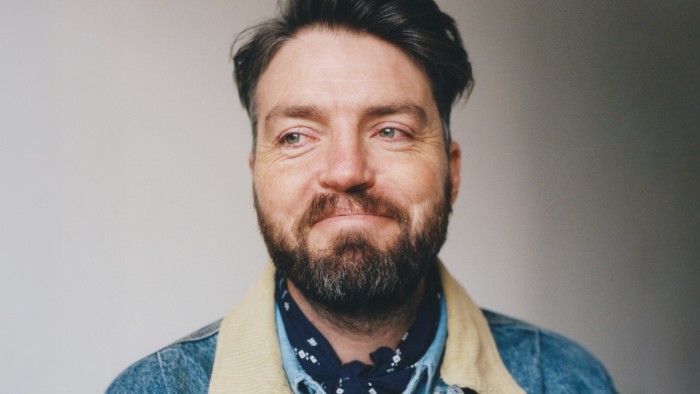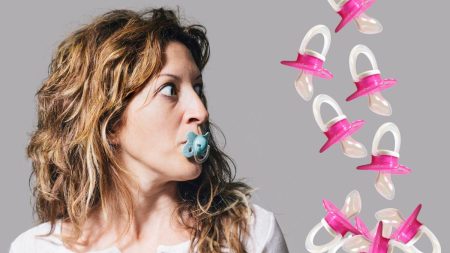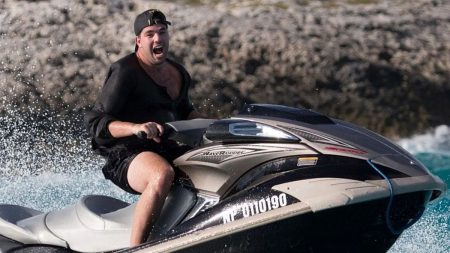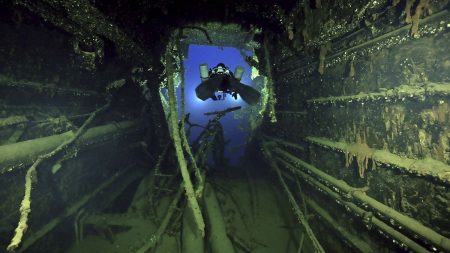Summarize this content to 2000 words in 6 paragraphs in Arabic When Tom Burke was working on Joanna Hogg’s 2019 film The Souvenir, he found himself growing increasingly irascible. He was playing Anthony, a charismatic, Oxbridge-educated civil servant with a secret heroin habit that drove him to steal from and lie to his girlfriend. He still isn’t sure whether his darkening mood was a result of the character seeping into his subconscious or if it was entirely unrelated. “I might just have been going through some sort of enormously dark, depressing patch anyway,” he says, “and thank God that film was there to give me something to put it into.” He has wondered in the past whether Anthony was, for him, “what Jung calls the shadow, the unconscious personality”. Anyone who has watched Hogg’s film will know that whatever was happening for Burke, it produced one of the most bewitching performances in contemporary cinema. He held horribleness and loveableness, destructiveness and creativity in one extremely beguiling man. And although “the shadow” seems to bear some relevance to the intensity of what we saw on screen, it was still a performance – one that launched Burke, then 38, into an ambitious new phase of his career.“I texted David Fincher as soon as The Souvenir was over and said, ‘I think I just saw your Orson Welles,’” says director Steven Soderbergh (Burke was later cast in Mank, a drama about the Citizen Kane writer Herman J Mankiewicz). “He was just incapable of being uninteresting. There are some people that can literally do nothing and hold your attention. Tom seemed to have a kind of innate watchability that was not self-conscious, in the sense of trying to win the scene. He just seemed to be so completely immersed in the character that he was playing. You felt like you were eavesdropping. That’s very compelling.” “I was mesmerised by him,” says Cate Blanchett, Burke’s co-star both in Soderbergh’s upcoming spy thriller Black Bag and onstage in a production of The Seagull that will open at the Barbican this month. “I was desperate, yes, desperate, to work with him.”Today, Burke is sitting in his publicist’s office in west London, overlooked by a large black-and-white photograph of Bill Nighy walking down the street (“Mr Nighy”, Burke calls him with a twinkle in his eye). In person he is very open in his manner, a close listener and eloquent speaker, literary in his references and dryly funny. “I’ve always thought of myself as an expressionist,” he says at one point. Take his outfit: a black-and-navy striped waistcoat that he had made by the punk-style tailors Earl of Bedlam out of “a gigantic pair of trousers that I saw on an extra on The Musketeers”, an Iron Maiden T-shirt and a faux fur-trimmed coat, also made by Earl of Bedlam. He first apologises for his outfit being “quite strange”, then attributes it to his early-morning flight, and eventually stands by it: “It’s not that strange. It’s probably the sort of thing I would wear.”In The Seagull, Burke will play the moody novelist Trigorin in a new production directed by German director Thomas Ostermeier. Cate Blanchett will play his lover Arkadina and Emma Corrin is Nina, the young actress who he falls for then discards. “I’ve wanted to play Trigorin for a really long time,” says Burke. “I think he’s got a pretty busy head,” which “appeals to me as an energy”. He enjoys the character’s complicated soul. Trigorin “is sometimes cast as the villain of the piece”, says Burke with a long exhalation, before deciding: “I don’t feel like you get villains in Chekhov. Everyone’s so complex. It’s good to commit to the dark side of it, though, as well.”There is a thread running through many of his characters. Burke is often cast to play cerebral, charismatic men who occupy the dubious outskirts of moral decency. Likewise, in Black Bag, he will appear as a boyish, philandering secret agent in a murky plot that involves the Russians and a piece of nuclear hardware. The drama unfolds in a world of delicious townhouses with huge glass-walled extensions and unsignposted Japanese restaurants. Blanchett does a lot of slinking around in silk pyjamas. Burke has a raucous monologue during a dinner-party scene where the guests, who all work for the secret intelligence service, have been served a drug-spiked Chana Masala that unleashes their base desires. It was a judicious piece of casting. “[Tom] radiates a raw intelligence,” says Soderbergh, “and he’s got a great voice. So I would argue that he’s best deployed when playing characters who really know how to talk.”Burke grew up in a cottage in the Kent countryside. He is what Soderbergh calls “a second-generation performer”, the only child of actors David Burke, who played Dr Watson in The Adventures of Sherlock Holmes in the 1980s, and Anna Calder-Marshall, who played Cordelia to Laurence Olivier’s King Lear (both were also RSC stalwarts and Alan Rickman was Burke’s godfather). As a child, Burke struggled with severe dyslexia and was left with a scar from reconstructive surgery for a cleft lip. He was “painfully shy”, he recalls, and it wasn’t until his parents moved him to a Steiner school, which uses play as a teaching medium, that he grew in confidence. What drew him to performing as a child is the same thing that attracts him now. “I think there’s something about being seen… It’s not being applauded. It’s not just attention. It’s more like being witnessed. It’s something about fragility and going to a particular place and feeling that be witnessed. I think I had a sense of that.”After studying at the National Youth Theatre, and a few months at dance school studying contemporary and ballet (which have stayed with him: “When I really admire performances they’re very in their body,” he says), he did some TV roles then went on to drama school. “I didn’t have the easiest time at Rada,” he recalls. “I felt very lost for most of it. I remember thinking: there must be some sort of unified theory of how this all ties together. And I think that way madness lies.”An encounter with Jacobean theatre one term got him into gear, with Webster’s The White Devil. “It was like being given a kind of delicious feast after being on a diet of brown rice and water,” says Burke. He decided “to let myself do whatever I want to do”, which allowed him “to reclaim my imagination”.After drama school he began a steady stream of TV and theatre work, including the thriller series State of Play and a production of Macbeth at the Almeida. But he felt a bit at sea in his career during his 20s. The TV work picked up – he played the philandering Dolokhov in the BBC’s War & Peace and Princess Margaret’s lover in The Crown – but significant leading roles evaded him. At one point he was turned down for a big TV part because he was told his face wasn’t right. Playing Cormoran Strike in the BBC’s adaptation of JK Rowling’s crime novels took him closer to being a household name. It was being cast in The Souvenir, in his early 30s, that finally exposed the depth of his talent.“Tom has a charisma that Anthony had too,” Hogg says in an email of what she saw in him. What she admired in his acting was “a lack of vanity, fearlessness and also questioning – the kind of questioning that comes out of genuine curiosity rather than fear”.Burke does not adhere to a particular technique when approaching roles, but instead has an arsenal of methods. “I was doing a lot of Meisner on Furiosa of all things,” he says at one point, referring to the technique that encourages actors to focus on the bodies of the other people around them rather than thinking about their own thoughts and feelings. The Souvenir was very method-based. In preparation for The Seagull, he has been saving images of novelist Karl Ove Knausgaard, who he thinks has “something of Trigorin” about him. “Every job feels very different,” he says of his approach. “I don’t think I ever settled on one thing or another.”Burke has the “joy of performing that just makes the whole thing more fun”, says Soderbergh. “There’s no sense of him only having a certain amount of gas in the tank. His attitude is: I love doing this. I’ll do it all day. I’m here to act.”His commitment and enthusiasm are evidenced in the photographs in these pages, for which he is styled as different stock characters. Despite running on two hours’ sleep (he is filming the Amazon Prime series Blade Runner 2099, about which he can’t share details, and got up to take a 6am flight), Burke threw himself into the personas and “really got on board”, says photographer Toby Coulson. True to his attraction to darker characters, Burke had the idea of twisting the romantic-lead look, for which he held a bunch of flowers, with the suggestion of misbehaviour. “He had this idea that he would be suspicious,” Coulson says, “like if he had the flowers he had done something wrong” (Coulson encouraged him to take “the smiley route”). Burke has described himself as having “workaholic” tendencies in the past. But now he says he tries to be “stubborn about things like sleep”, and to make time to read and walk: around London (“I’m a flâneur,” he says, gently mocking himself) and the countryside, where he recently moved. Theatre for him is a space that “is different from everything else in the week”. He recalls the first time he experienced Catholic Mass at his aunt’s funeral, after his own Church of England upbringing. “I was like, ‘I like this. This is different.’ I love that mixture of theatre when it has a scale to it and then then the liveness is happening within that.” It goes back to what he learnt from the Jacobeans: “Decadence! I think decadence is a vital ingredient in art, no matter what you’re doing.” The Seagull is at the Barbican from 26 February to 5 April, barbican.org.uk; Black Bag is in UK cinemas from 14 MarchGrooming, Ami Fujita using Nars. Set design, Clarisse d’Arcimoles. Photographer’s assistant, Ollo Weglin. Stylist’s assistant, Susie Lethbridge
رائح الآن
rewrite this title in Arabic Tom Burke is taking the lead
مال واعمال
مواضيع رائجة
النشرة البريدية
اشترك للحصول على اخر الأخبار لحظة بلحظة الى بريدك الإلكتروني.
© 2026 جلوب تايم لاين. جميع الحقوق محفوظة.









